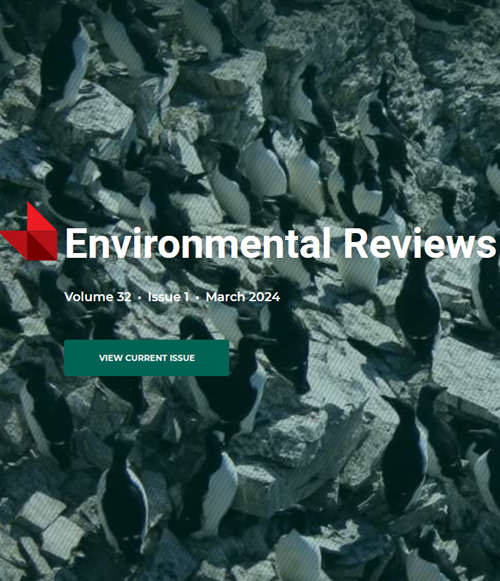鲟鱼不同生命阶段种群监测所用评估技术综述
IF 5.1
3区 环境科学与生态学
Q2 ENVIRONMENTAL SCIENCES
引用次数: 0
摘要
鲟鱼是一种独特的物种,历史上曾广泛分布于北半球。根据世界自然保护联盟(IUCN)红色名录的最新评估,全球超过 80% 的鲟鱼濒临灭绝,因此有必要确定鲟鱼受影响最严重的生命阶段,同时根据标准化评估技术对不同河流系统和种群进行比较。鲟鱼的生活史策略相似,但并不完全相同。因此,针对一种鲟鱼物种开发的监测技术将适用于大多数其他物种。可在每个生命阶段进行监测。不过,虽然每个生命阶段都能提供不同的种群信息,但并非所有生命阶段都能帮助评估种群趋势或状况。事实证明,即使付出很大努力,也很难对变化很大的生命阶段进行量化。总体而言,这些评估可以为种群状况、局限性和趋势提供大量信息。然而,对每个阶段进行监测既费时又费钱。因此,在开展评估计划时,必须明确目标。本研究的目的是回顾不同生命阶段的评估技术,包括卵、漂流幼虫、0 龄幼鱼、幼鱼、亚成鱼和成鱼,以便为种群评估提供一个共同的基础,并在一定程度上实现标准化,从而便于对所获得的结果进行比较。为此,本综述介绍了各生命阶段最常见的评估技术,评估了各生命阶段评估的利弊,并研究了该方法是定性还是定量,以帮助制定长期监测计划。本文章由计算机程序翻译,如有差异,请以英文原文为准。
A review of the assessment techniques used for population monitoring at different life stages of sturgeons
Sturgeons are a unique group of species which were historically widespread across the northern hemisphere. According to the latest IUCN Red list assessment, more than 80% of the species globally are threatened with extinction, making it essential to identify the life stages at which they are suffering from impacts the most while at the same time to compare among river systems and populations based upon standardized assessment techniques. Sturgeon all have similar, but not identical, life-history strategies. Therefore, monitoring techniques developed for one sturgeon species would be applicable to most other species. Monitoring can be conducted at each life stage. However, while each life stage will provide different information about the population, not all will necessarily help to assess population trend or status. Life stages that are highly variable prove to be less quantifiable even after expending very high effort. Collectively, these assessments could be very informative on population status, limitations, and trends. However, monitoring at each stage is time consuming and expensive. Clearly defined objectives are therefore required when embarking on an assessment program. The objective of this study was to review the assessment techniques used for the different life stages including eggs, drifting larvae, age-0, juveniles, subadults and adults to provide a common basis for population assessments that can be standardized to some extent and thus facilitate comparisons between the results obtained. For this purpose, this review presented the most common assessment techniques for each life stage, assessed the pros and cons of assessing each life stage, and examined if the methodology was qualitative or quantitative to assist in establishing long-term monitoring initiatives.
求助全文
通过发布文献求助,成功后即可免费获取论文全文。
去求助
来源期刊

Environmental Reviews
环境科学-环境科学
自引率
3.50%
发文量
45
期刊介绍:
Published since 1993, Environmental Reviews is a quarterly journal that presents authoritative literature reviews on a wide range of environmental science and associated environmental studies topics, with emphasis on the effects on and response of both natural and manmade ecosystems to anthropogenic stress. The authorship and scope are international, with critical literature reviews submitted and invited on such topics as sustainability, water supply management, climate change, harvesting impacts, acid rain, pesticide use, lake acidification, air and marine pollution, oil and gas development, biological control, food chain biomagnification, rehabilitation of polluted aquatic systems, erosion, forestry, bio-indicators of environmental stress, conservation of biodiversity, and many other environmental issues.
 求助内容:
求助内容: 应助结果提醒方式:
应助结果提醒方式:


